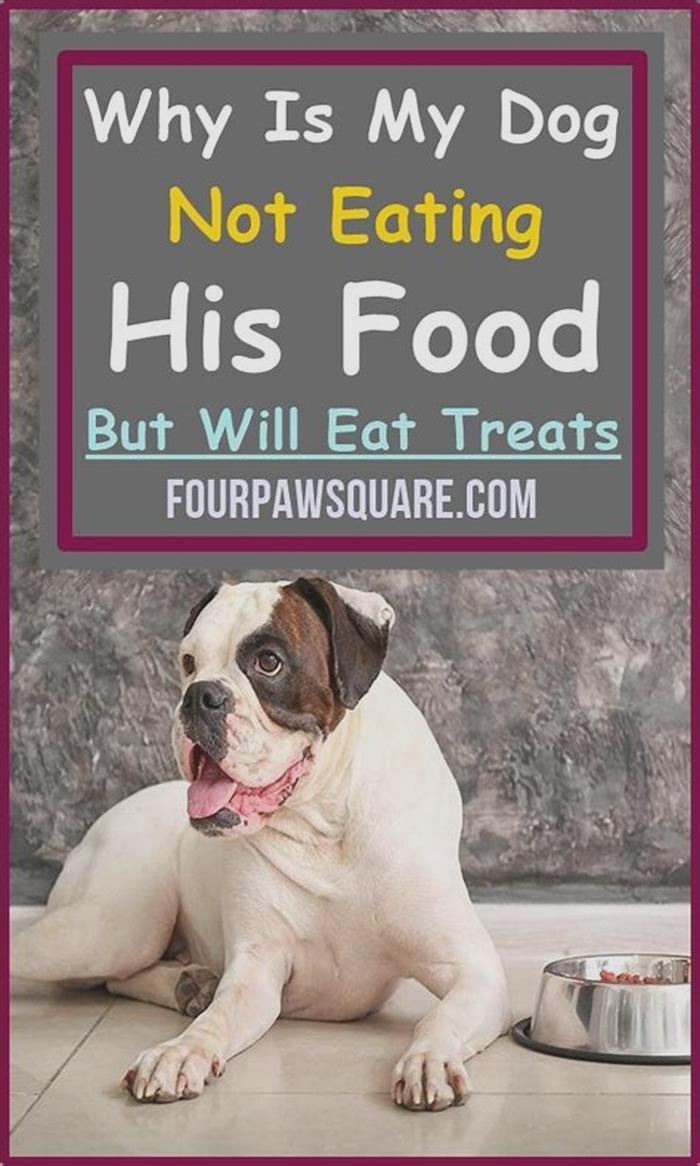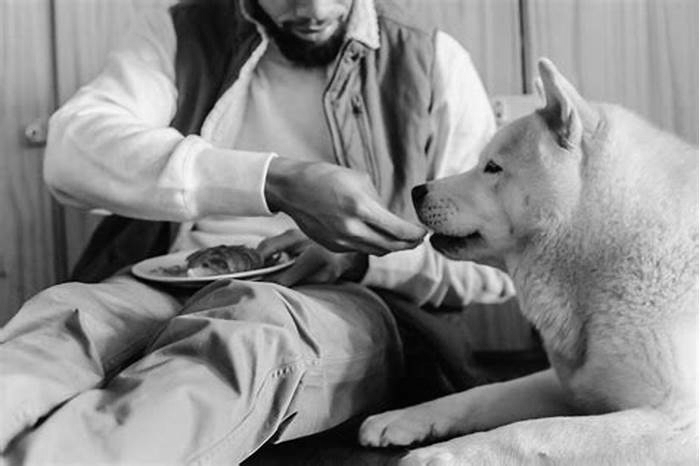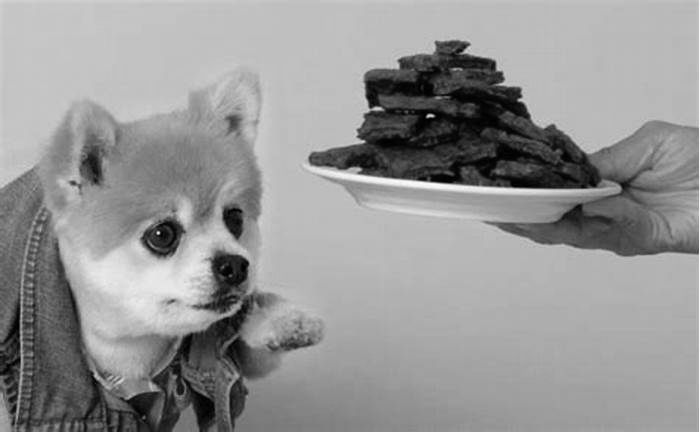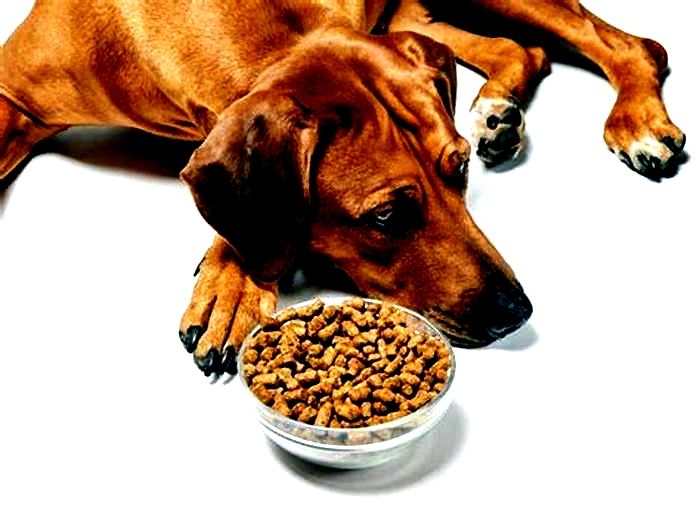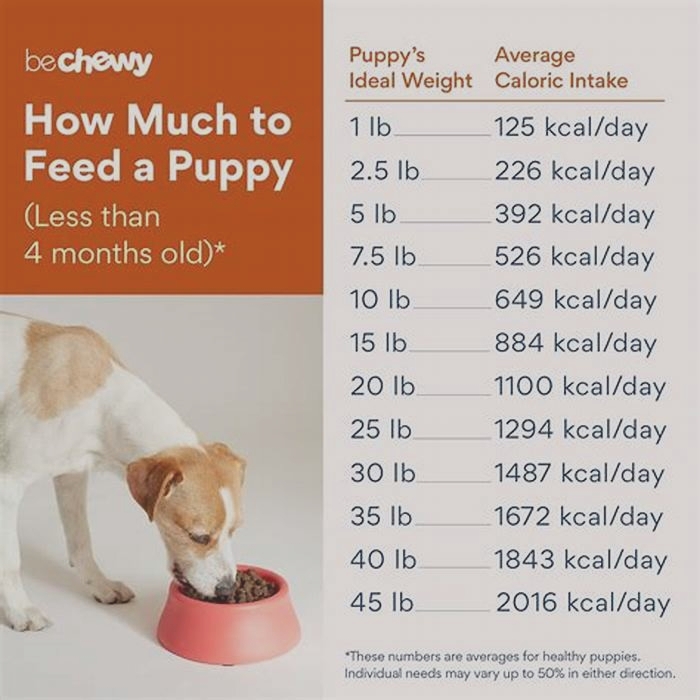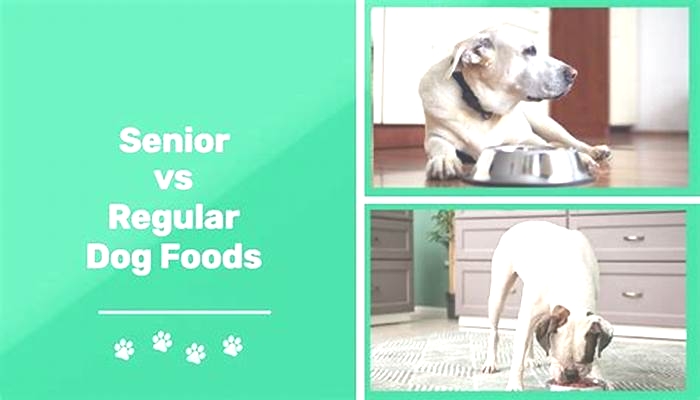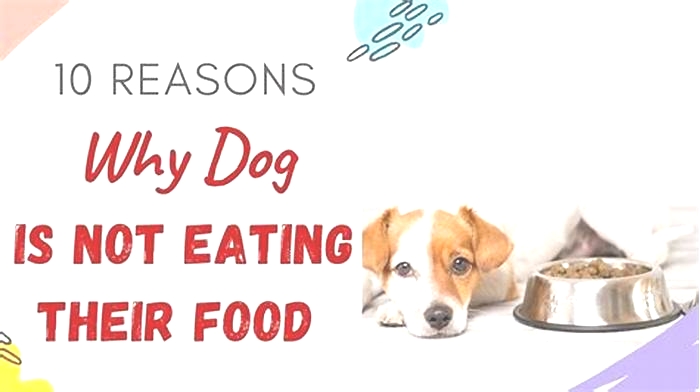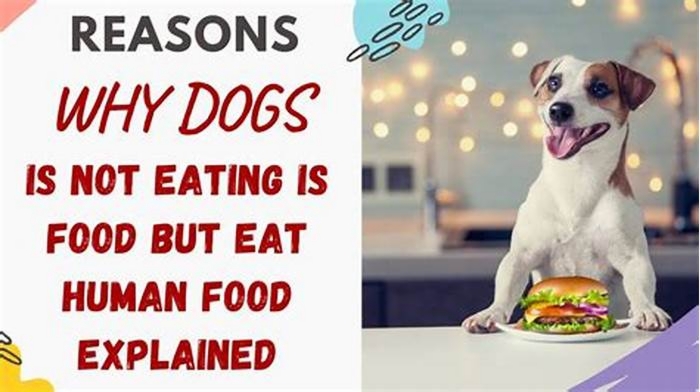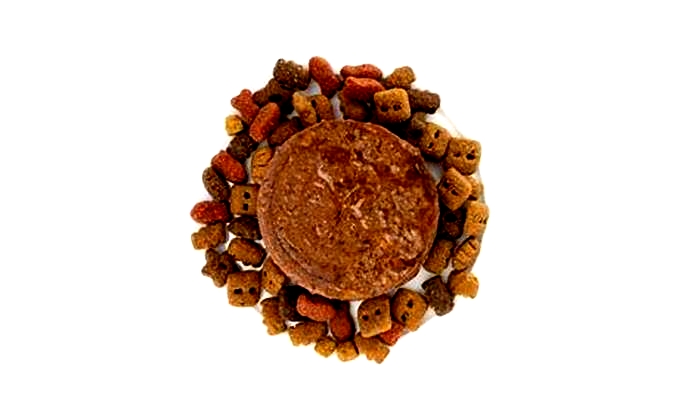Why won t my dog eat dry food but eats treats
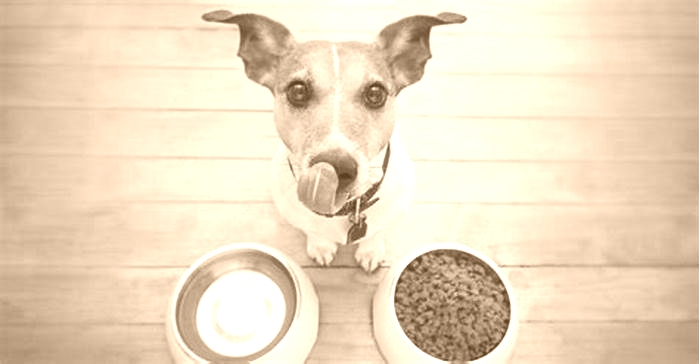
Why is my dog not eating their food but will eat treats?
Every pet parent loves to give their beloved furry friend a few treats when they deserve it, or even just because their pooch is looking super cute.
Although this is all well and good, treats should be literally just that, a treat. Your dog will never feel happy and healthy if theyre surviving on treats alone, they need healthy, wholesome, balanced dinners to ensure they thrive.
But what happens if your dog is downright refusing to eat their dinners but will happily gobble up all those treats or your table scraps? Well, there are many reasons why your dog might be doing this, but overall, its definitely a sign that something is amiss so its important to try and figure out whats wrong.
Were here to help you figure out exactly what the issue is and how you can get your pup loving their food again and licking their bowl clean.
Discover delicious food your dog deserves
Learn more
Why wont my dog eat his food but will eat treats?
A dog that just wont eat their meals can be a real stress for pet parents, after all, you want your dog to love their food!
If your pooch isnt eating their dinners but will still scoff down a treat or even your leftover Sunday roast, its referred to as partial anorexia. This means that your dog isnt refusing all kinds of food, but theyre definitely not eating enough to keep them healthy. So, lets delve right into why your pooch might be sticking their snout up to their meals.
Feeling under the weather
If this strange refusal of food has cropped up out of nowhere, its a possibility that your dog could be feeling under the weather. When were feeling poorly, especially when were feeling nauseous, we often lose our appetite, and this could be exactly whats happening to your pooch if they normally had no issues with eating their dinners. A few treats might be all that they can stomach to sustain them throughout the day.
Hopefully, their dicky tum should settle down in a few days and theyll be right back to scoffing everything in sight, however, if it lasts more than a few days and youre seeing other strange symptoms (vomiting, diarrhoea, fatigue) then its best to consult your vet to try and get to the root of the problem.
Emotional and behavioural problems
Your dogs emotions can actually play a huge role when it comes to their dinnertime habits (well, maybe not if youve got a greedy pooch who will eat anything and everything in sight!). However, other dogs may decide to not eat their meals if theyre feeling anxious, stressed or fearful, but they might still be able to manage a tasty little treat.
This strong emotional response could be triggered by various things, for example new pets or people in the house, a change in routine, loud noises like fireworksand simply even having a new food bowl. Hopefully, theyll continue eating their food once the trigger has gone or once theyve finally gotten used to whatever was bothering them.
If theres two pets in the household its possible that one of them is being a bit of a greedy guts and trying to snaffle both dinners. They might be using resource guarding to intimidate your other dog away from their food, resulting in them being left with none. This means that your other pup only manages to get treats throughout the day that they get directly from you.
The food is spoiled
If you own a Lab, theyll happily eat whatever is in their food bowl, with no care in the world for if its old, stale, smelly and even mouldy. But what about the pickiest pooches like Frenchies? Fussy dogs are likely to turn their nose up and trot away from their food bowl if there was anything amiss, such as the food being off, and wait for some treats instead, and rightly so!
If your dog has been eating the same food for a while, its a good idea to check the packet and see when it expired. Believe it or not, this applies to any dry dog food too. However, this is especially important if you feed raw food as this will harbour bacteria and cause a number of tummy problems if your dog does decide to take a bite of any spoiled raw meat.
They dont like their food
Some dogs can be real fusspots, so they might not be eating their meals because they simply just dont like the food youre putting down in front of them. Talk about a pampered pooch!
Full up on treats
Are you a sucker for that waggy tail and those puppy dog eyes? Yep? Us too. Although its great to give your pooch a few treats when theyve been good (or just because they look super cute), you might be handing out a few too many so that theyre not hungry enough for their main meal.
This might be especially true if your pooch is in training, as its likely that youll be using lots of treats through the day to help get your pup trained to perfection.
Theyd rather eat yours!
Sometimes wed much rather eat a load of food that isnt that great for us rather than a balanced, healthy dinner. And your dog might feel the same way! Your dinner might smell amazing to your pooch (even though it will probably contain lots of things not suitable for our hounds), so they might be testing the waters and holding off from eating their own dinner in the hopes that youll toss them some table scraps.
Dogs know how to play with our emotions with their puppy dog eyes, so its easy to give them something from your plate out of sympathy and worry if you know theyve not eaten. But thats exactly what theyre after!
Our hounds are very clever, and theyll soon come to realise that if they dont eat their meals straight away that theyll be in with a chance of yours. And although they might be on a hunger strike from their main meal, your pooch will probably still want to gobble up any tasty treats that come their way.
Dental issues
Any kind of toothache, ulcer or infection in the mouth can make eating a really painful chore, and its just the same for your dog, explaining why your dog might be refusing their dinners. However, they might still be able to manage treats as theyre only tiny little titbits.
Treats can generally be quite soft, or even small enough to swallow down in one gulp, making them much easier to eat than a bowl of food. Take a look inside your dogs mouth and see if theres anything amiss. If so, get them to the vets straight away to get the problem sorted instantly so your pooch can continue tucking into their tasty meals.
How can I make my dog eat their food?
Before your dog goes back to scoffing down their dinners again, you need to try and work out whats causing the problem in the first place and hopefully resolve it. So, if this is a new problem, go to the vets and see if there are any medical or dental issues, consider how many treats your dog gets on the daily, take a look at your dogs dinners and even have a look at your environment, has anything changed?
A dog that wont eat is super stressful for pet parents, so lets take a look at some tips and tricks on how to get your dog to eat their meals.
Try out a new food
Your dog might just not like whats on the menu currently, so nows the time to try out a new food thatll tickle your pups tastebuds. Also, just make sure to double check that your dogs bowl is clean from old food and their food is still in date if this is a sudden change of appetite!
Your picky pooch needs something with delicious, high-quality ingredients that will be almost impossible to resist. And of course, wed really recommend Pure!
Pure is full of real meat, fruit and vibrant veggies to create tasty, balanced dinnersthatll get your poochs tail wagging in no time, weve won over tonnes of fussy eaterswith our yummy recipes. Pure is the complete opposite of those boring brown kibble biscuits (we can totally understand why your dog wouldnt want to eat them!), and you can serve it up to your dog as a delicious-smelling, warm dinner thatll be sure to get them salivating.
Stop handing out treats and table scraps
Although those puppy dog eyes might be hard to resist, you need to be a stern pet parent and lay off the treats. You need your pooch to learn that theyll only be able to have treats once theyve eaten their dinner. Raising a dog really is like raising a human child sometimes!
Also, table scraps need to be totally off limits, so make sure to keep everything out of reach. Once your pup realises they dont have treats to fall back on, theyll probably go back to their food bowl once theyre hungry and stop begging.
The most important thing with this is to be consistent. Put their dinner down and if they dont eat it within 10 minutes, take it up and dont put it back down until their next scheduled mealtime, with no treats in between. It might be hard to know your pup is missing their mealtimes, but once they realise that they get nothing in exchange for their food, theyll start eating it.
Dont give treats randomly, only if they truly deserved the treat during training. It can be super frustrating trying to kick this habit, but just be patient and dont give in to any begging and cuteness!
Check your surroundings
If you think that this loss of appetite is caused by something in your dogs environment, you need to work out what it is and get the issue fixed. For example, if its another dog in the household causing the issue, try feeding them in separate rooms to make sure no resource guarding and intimidation tactics are at play.
On the other hand, if your pup is feeling anxious about loud noises such as fireworks, and thats causing them not to eat their dinner, they should go back to normal once the noise has stopped. However, its a good idea to try and desensitise your dog to loud noises and help them deal with things like fireworks, as nobody wants their pooch feeling anxious and fearful.
Hopefully, if the only difference is just something minor like a routine change, then your dog should get used to it in a few days and get back to their normal self in no time.
Will my dog starve?
No, if your dog is otherwise healthy and they get hungry enough, theyll eat. Dogs can actually go up to 5 days without food if theyre feeling stubborn enough, but of course, we dont want it to get to that point. If it has been more than a few days since your dog last ate, head to the vets.
Recap
All in all, there are several reasons as to why your pup might be on a hunger strike from everything you dish up, so work with your dog to get to the root of the problem. Once youve got it cracked, your pooch should be gobbling up their meals in no time.
What to Do When Your Dog Wont Eat Their Food But Will Eat Treats
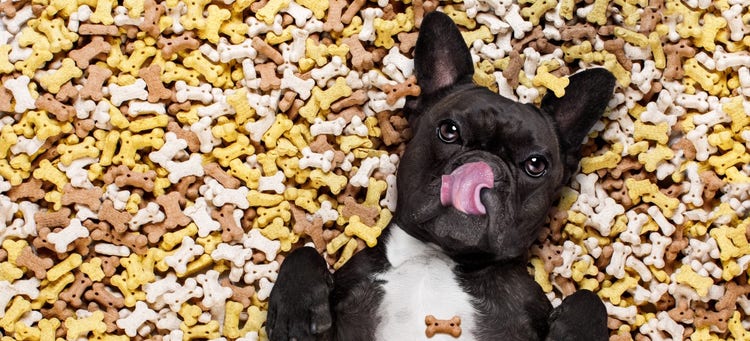
What to Do When Your Dog Wont Eat Their Food But Will Eat Treats
It is common for dogs to not eat their food, but eat treats or table scraps. This is referred to as partial anorexia and it typically occurs because your dog doesnt feel well.
Partial anorexia means a dog will eat, but only if something special, such as treats or table scraps like chicken or beef, are added to the food. Sometimes, dogs will refuse everything but will eat something as peculiar as a fast-food hamburger.
Full anorexia is when a dog wont eat anything, including normal dog food, special treats, food doctored up with cooked ground beef, chicken, baby food, or anything you offer. Both problems can be serious, but full anorexia is an even bigger issue. Learn more about Home Care of Anorexia in Dogs.
Reasons for anorexia in dogs can vary from minor issues, such as an upset stomach, to serious and even life-threatening problems. For more information please see this article: My Dog is Not Eating, What Do I Do?
Reasons Dogs Wont Eat
There are several causes for a dog to be off their food or have partial anorexia. According to Dr. Etienne Cote, the reasons dogs may refuse to eat can be grouped into two major categories psychological reasons and medical reasons.
Psychological Causes for Anorexia in Dogs
Psychological causes of refusing to eat include things in a dogs environment that caused them to not want to eat. There is no underlying medical issue or disease. Common examples of psychological anorexia include anything that changes a dogs schedule or causes stress, including:
- New pets in the home
- New baby in the home
- Guests from out of town
- Moving to a new home
- A loud thunderstorm
- Remodeling or home construction
- Switching dog foods
- A change in schedules, such as a family member starting a job or becoming unemployed and staying home more frequently
- A family member leaving the homestead, such as a child going off to college
Medical Causes for Anorexia in Dogs
Medical causes of anorexia include any condition or illness that causes a dog to not want to eat. They can include hundreds, maybe even thousands, of potential issues. The medical disorders that can cause anorexia include diseases of the gastrointestinal tract, liver, pancreas, kidneys, airway, lung or blood, and anything that can cause pain. Information about some of the most common causes include:
- Gastrointestinal Diseases The gastrointestinal tract includes the system that takes food in, processes it, and eliminates it. This includes everything from the mouth, esophagus (the tube that takes food from the mouth to the stomach), the stomach, the small intestine, and finally the large intestine. A disease of any of these areas can cause a dog to not want to eat and are commonly associated with vomiting and diarrhea.
- Diseases of the gastrointestinal (GI) tract include infections of the bacterial, viral, or parasitic variety. Examples of infections are hookworms, roundworms, whipworms, and viruses, such as coronavirus or parvovirus. Additional diseases of the GI tract include tumors, such as cancer, ulcerations, inflammatory diseases, food allergies, ingestion of indigestible objects that cause a foreign body, ingestion of spoiled food or trash, or even changes in food. Diseases of the mouth, such as bad teeth or ulcerations, can also cause pain and lack of appetite.
- Liver Diseases The liver is an organ in the abdomen (belly) whose main job is to filter body wastes and toxins from the bloodstream. When the liver isnt working properly, toxins can build up causing nausea and inappetence. Many dogs will be lethargic and/or have additional symptoms, such as vomiting and diarrhea.
- Diseases of the liver include hepatitis, cirrhosis, liver cancer, toxic reactions from drug therapies, and congenital problems, such as a Portosystemic Shunt.
- Pancreatic Diseases The pancreas is a small organ that sits near the stomach that has several jobs, including the production of insulin and digestive enzymes that help break down food in the stomach.
- Diseases of the pancreas include inflammation of the pancreas, also known as pancreatitis, and tumors of the pancreas (pancreatic cancer). When the pancreas becomes inflamed, the organ can release some of the digestive enzymes in to itself, causing further inflammation, pain, nausea, and lack of appetite. Pancreatic cancer also causes lack of appetite, lethargy, weakness, and general vomiting.
- Kidney Diseases Diseases of the kidney, most commonly acute kidney failure or chronic kidney failure, cause a loss of appetite. Many pets will also drink more, urinate more or less, have ulcers in their mouth, foul-smelling breath, and be lethargic.
- Airway and Lung Diseases Diseases of the airway include problems associated with the nose, trachea, and lungs. Pets that have nasal diseases, such as infections or cancer, cant smell their food and often wont eat or will only eat treats. Pets with lung diseases may have a compromised ability to breathe, which causes them to not want to eat as it can be difficult to eat and breathe at the same time.
- Blood Diseases There are many functions of the blood. Loss of blood or anemia from a variety of issues can cause dogs to become lethargic, weak, and lose their appetite. Anemia can result from loss of blood from trauma, ulcerations, immune-mediated problems where the body starts destroying its own red blood cells, or cancer. Often, we also see lethargy and weakness with diseases of the blood.
- Neurologic Diseases The neurologic system is focused on the brain, spinal cord, and nerves. Diseases that cause seizures, lack of coordination, inability to walk, or pain can all cause lack of appetite. There are hundreds of neurological diseases that include intervertebral disc disease, brain tumors, epilepsy, and vestibular disease, just to name a few.
- Other Diseases Any diseases that cause pain, such as a fracture, arthritis, or even something like eye pain, can cause lack of appetite.
As you can see, any disease that impacts the function of an organ can cause dogs to not feel like eating. If your dog is not eating, please see your veterinarian so that they can help identify the underlying cause and recommend the best treatment option to get your dog to start eating again.
Unfortunately, since potential causes of anorexia vary, so do the treatment methods and costs. If you're concerned about costs related to treating your pet's anorexia, pet insurance may be able to help. Click here to learn more.
How to Get Your Dog to Start Eating
To get your dog to start eating, you can try the following:
- Begin by feeding them a fresh batch of their favorite dog food. If it is canned food, try heating it up, which can release the foods aroma. If it is dry food, try adding a small amount of water or chicken broth to make it more appealing.
- If that doesnt work, you can try feeding them treats. If your dog enjoys treats, crumble them into their dog food to inspire ingestion.
- Try feeding a bland diet, such as boiled hamburger or chicken, mixed with rice as a 50/50 mix. You can buy this food commercially or make it at home. See the bland diet recipe here.
- Try to mix it up by feeding different varieties of canned food to see what is appealing to your dog.
Here are some great tips for home care for dogs suffering from inappetence. This article has suggestions that may help you get your dog to start eating.
How to Stop This from Happening Again
Many pet owners ask, How can I avoid having a dog that wont eat or will only eat their treats? The answer is to avoid underlying causes and monitor your pets diet. For example, if your dog is not eating because they got into the trash, ate some spoiled food, or have an upset stomach, the recommendation would be to ensure that your dog doesnt have access to the trash can. Another example is, if your dog is not eating due to pain from arthritis, work with your veterinarian to treat and prevent pain.
Additional Articles of Interest Relating to Food for Dogs that Wont Eat:

